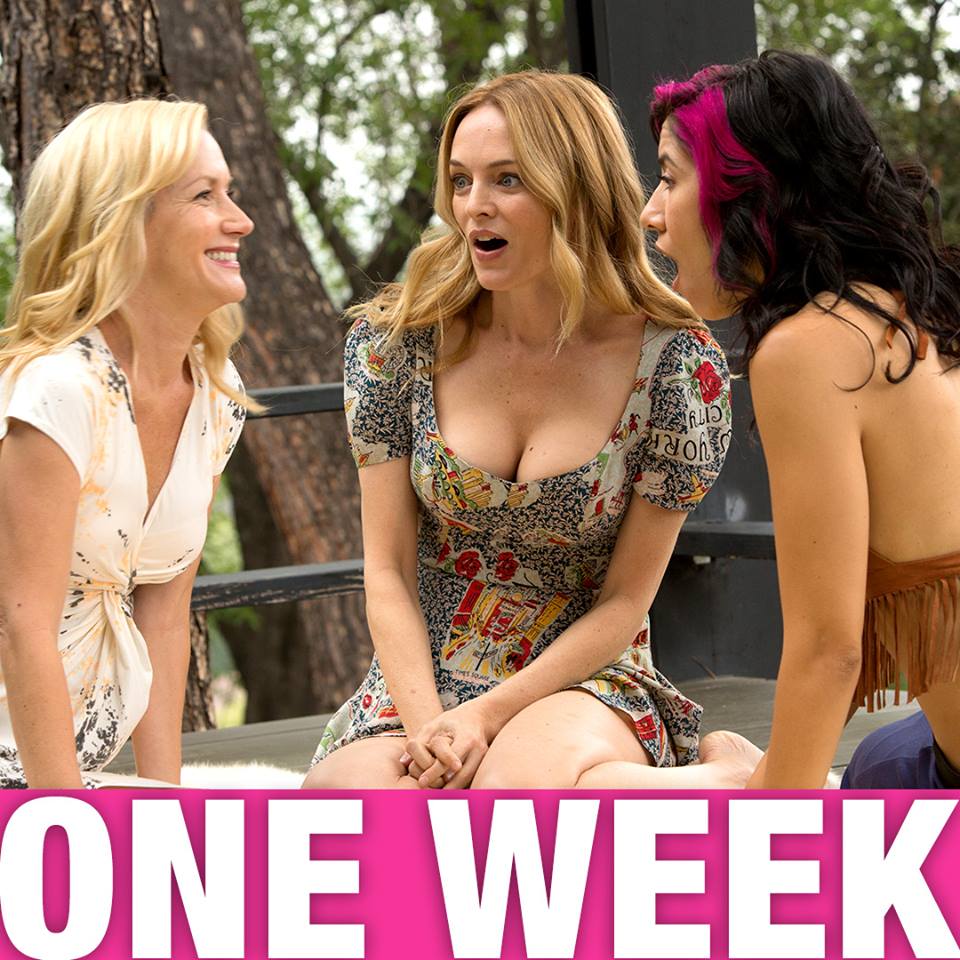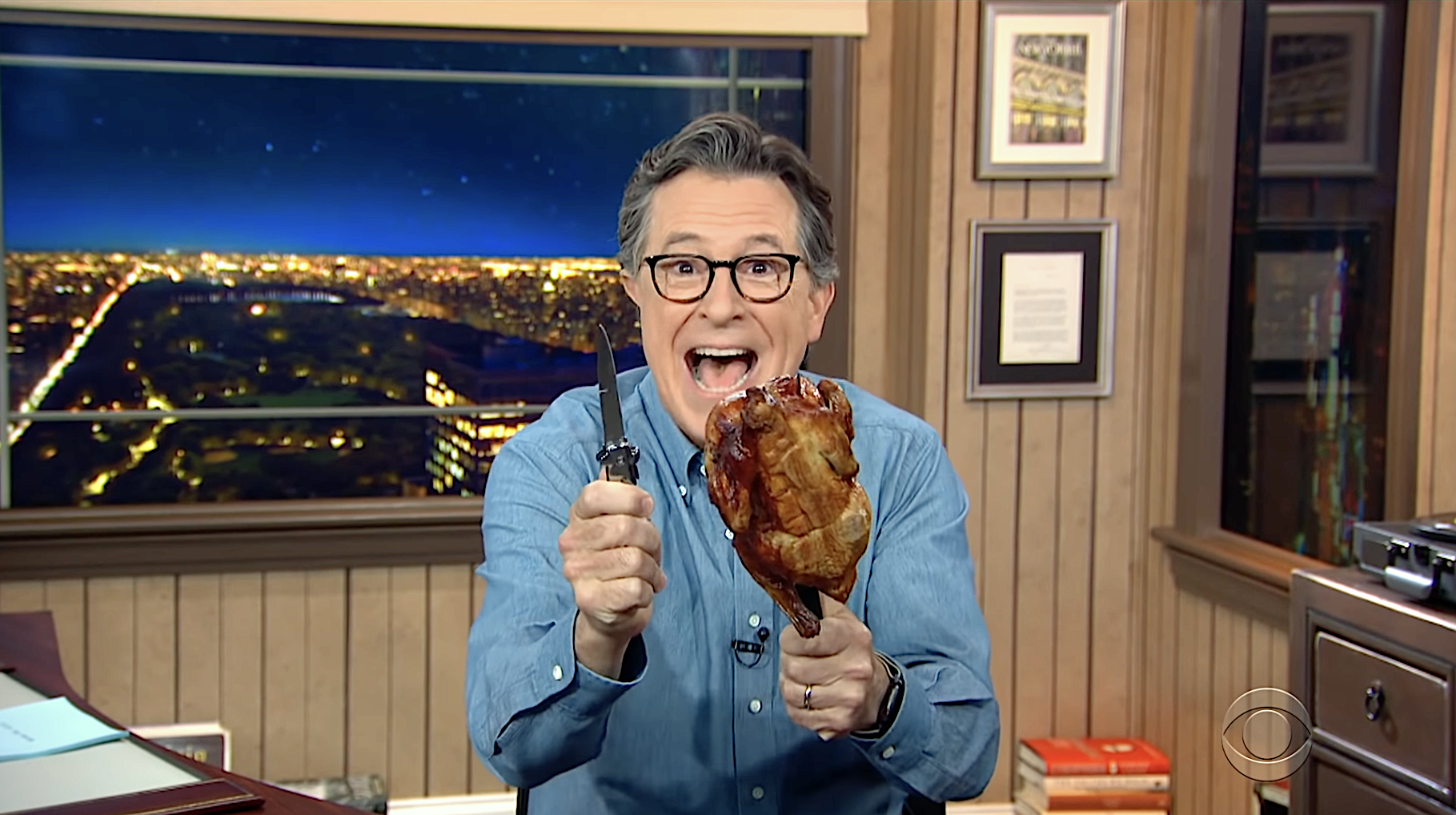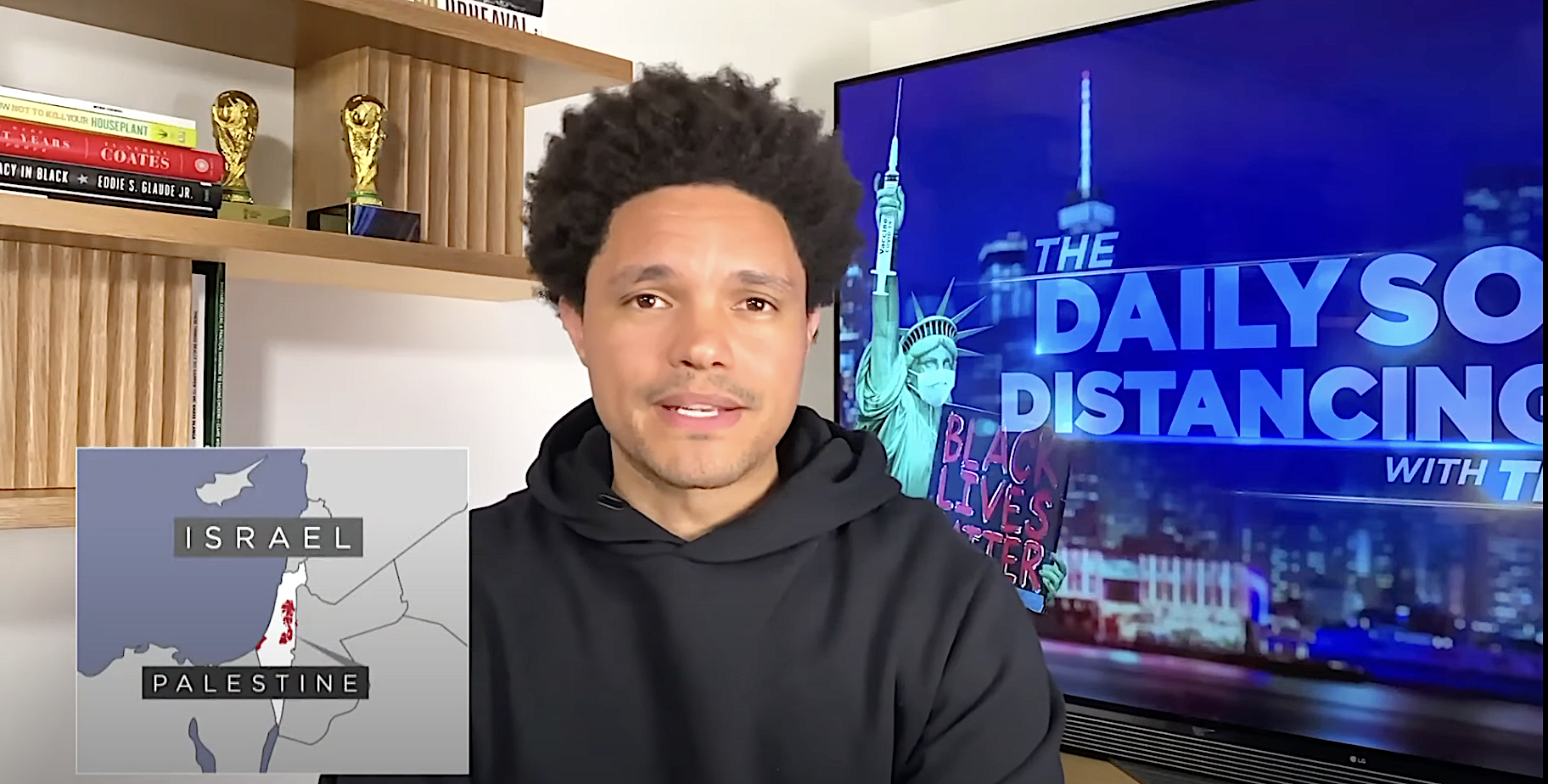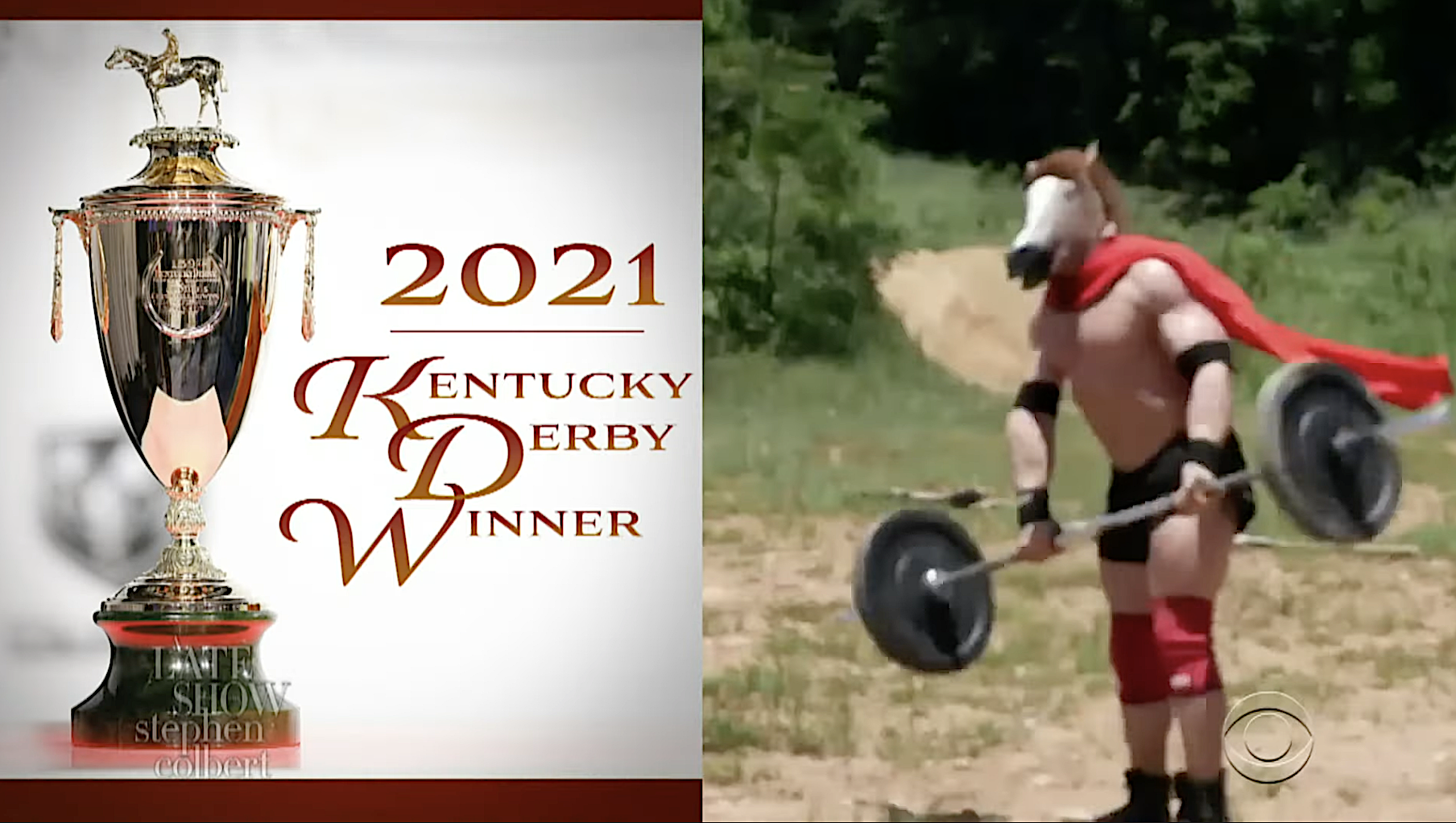Heather Graham's #MeToo comedy needs to be taken seriously
It's an incisive, semi-autobiographical send-up of how women survive Hollywood


A free daily email with the biggest news stories of the day – and the best features from TheWeek.com
You are now subscribed
Your newsletter sign-up was successful
Heather Graham's new comedy Half Magic deserves to be taken seriously.
Some critics have condemned this semi-autobiographical send-up of women who tolerate awful men on the grounds that some of its male characters border on malicious caricature. While this may feel true, #MeToo has exposed the fact that we have an amazingly poor sense of how badly men behave with women in their employ, and Graham herself has said the characters are based on real men she's worked with in Hollywood who were never told "no." This movie may have been greenlit before the allegations against Weinstein et al. surfaced, but it feels like a funny and sometimes incisive portrayal of how women have psychically survived that system.
In theaters today, the film is Graham's directorial debut. Starring her, Angela Kinsey, and Stephanie Beatriz, it tracks the three protagonists' journey from a) recognizing they've stopped seeing themselves as deserving anything at all, to b) thinking seriously about what they want, to c) making lots of mistakes about that, to finally d) using magic (yes, magic) to give them permission to chase their happiness and make their dreams come true. It's not a linear progression by any means; the movie spirals through these states in ways that feel as familiar as any self-help journey. The movie's honesty about how inured its characters have become to anything like straightforward desire is its greatest strength.
The Week
Escape your echo chamber. Get the facts behind the news, plus analysis from multiple perspectives.

Sign up for The Week's Free Newsletters
From our morning news briefing to a weekly Good News Newsletter, get the best of The Week delivered directly to your inbox.
From our morning news briefing to a weekly Good News Newsletter, get the best of The Week delivered directly to your inbox.
The movie begins with Graham's character Honey staring straight ahead while a male filmmaker (Chris D'Elia) penetrates her from behind in a fancy office. He calls her a "little slut" as he ejaculates and tells her to say the phrase too. She doesn't want to, and doesn't like it, but she does. She's his assistant, after all, and wants to be a writer. It's a vaguely upsetting portrait of female compliance. Even her objections afterward feel distant; she's barely been present at all.
The filmmaker, Peter, goes on to take credit for "discovering" her, but informs her that her script ideas are no good; sex and violence sell and women's stories don't. Examples of great moviemaking include his concept of all the "sluts" in the movie being killed and one of his female characters getting "stabbed in the ass." Honey, now back home, sadly scratches out the word for female genitalia in her movie title and replaces it with "penis." That's when a mailer about loving her genitals catches her eye.
She goes to a workshop (led by Molly Shannon) that includes cheesy exercises in self-love like repeating "my pussy is a genius." It's embarrassing. She's not into it. But she's trying to remain open. It's here that she meets the two other principals of the film: Eva (Angela Kinsey), a successful designer whose artist husband has cheated on her, and Candy (Stephanie Beatriz), a magic enthusiast dating a "free-thinking" commitment-phobe who expects her to wash his clothes while he sleeps with other women. Candy's faith in magical candles you whisper your wishes to powers much of the film.
It's not exactly a subtle setup. But what's surprising about this funny little film is how blithely it marries dream fulfillment with undercurrents of dissatisfaction. Kinsey's character Eva, for instance, misses her artist husband. She calls him several times, drunk and crying, trying to entice him to come over. He does, finds her a mess, and isn't exactly unkind. You can see why she's still stuck on him and why he might have moved on — she really is kind of a disaster. When she starts dating a total dreamboat who confesses he's had a crush on her forever, she panics. She's insecure about her body. She's accustomed to not being looked at or tended to, and has learned not to care much about sex. She chooses the bad sex with her ex-husband over the great sex with the gorgeous man who wants to see her naked.
A free daily email with the biggest news stories of the day – and the best features from TheWeek.com
This is the kind of intriguingly realistic problem this silly movie (which structurally sort of resembles Horrible Bosses) takes on. And it hits on aspects of the human experience Hollywood normally doesn't. Graham — so frequently cast as a flat, blue-eyed cipher whose interiority the camera wants to penetrate until it decides she's too doll-like to have one — addresses the constraints of her real-life career by having the awful filmmaker narrate her image back to her. He says, essentially, that her boobs are too big for her ideas to matter. Graham plays Honey with exactly the kind of brittle alienation a lifetime of this kind of treatment would produce: She's smart, but perennially uncomfortable and puzzled. Playing against the type she's been forced into, she's the movie's overthinker. And if she doesn't get any great breakthroughs, she does say "a person can be smart and have big boobs," and "people are gonna watch my movie and love it!"
What Half Magic explores is really the inverse of Judd Apatow's "Man-Child" arc, in which the juvenile pleasure-seekers in his movies scrabble their way toward stable social positions like Husband, Father, and Responsible Man. Here, women who have assented to relationships that basically require them to pretend to want things they don't are opting out in search of something like pleasure. Half Magic follows its three leads through various rituals of reclamation. Plenty are silly, but that's half the fun.
And fun — in this film — is almost a political point.
Lili Loofbourow is the culture critic at TheWeek.com. She's also a special correspondent for the Los Angeles Review of Books and an editor for Beyond Criticism, a Bloomsbury Academic series dedicated to formally experimental criticism. Her writing has appeared in a variety of venues including The Guardian, Salon, The New York Times Magazine, The New Republic, and Slate.
-
 How the FCC’s ‘equal time’ rule works
How the FCC’s ‘equal time’ rule worksIn the Spotlight The law is at the heart of the Colbert-CBS conflict
-
 What is the endgame in the DHS shutdown?
What is the endgame in the DHS shutdown?Today’s Big Question Democrats want to rein in ICE’s immigration crackdown
-
 ‘Poor time management isn’t just an inconvenience’
‘Poor time management isn’t just an inconvenience’Instant Opinion Opinion, comment and editorials of the day
-
 A peek inside Europe’s luxury new sleeper bus
A peek inside Europe’s luxury new sleeper busThe Week Recommends Overnight service with stops across Switzerland and the Netherlands promises a comfortable no-fly adventure
-
 A long weekend in Zürich
A long weekend in ZürichThe Week Recommends The vibrant Swiss city is far more than just a banking hub
-
 Walter Isaacson's 'Elon Musk' can 'scarcely contain its subject'
Walter Isaacson's 'Elon Musk' can 'scarcely contain its subject'The latest biography on the elusive tech mogul is causing a stir among critics
-
 Welcome to the new TheWeek.com!
Welcome to the new TheWeek.com!The Explainer Please allow us to reintroduce ourselves
-
 Late night hosts lightly try to square the GOP's Liz Cheney purge with its avowed hatred of 'cancel culture'
Late night hosts lightly try to square the GOP's Liz Cheney purge with its avowed hatred of 'cancel culture'Speed Read
-
 Late night hosts survey the creative ways America is encouraging COVID-19 vaccinations, cure 'Foxitis'
Late night hosts survey the creative ways America is encouraging COVID-19 vaccinations, cure 'Foxitis'Speed Read
-
 The Daily Show's Trevor Noah carefully steps through the Israel-Palestine minefield to an 'honest question'
The Daily Show's Trevor Noah carefully steps through the Israel-Palestine minefield to an 'honest question'Speed Read
-
 Late night hosts roast Medina Spirit's juicing scandal, 'cancel culture,' and Trump calling a horse a 'junky'
Late night hosts roast Medina Spirit's juicing scandal, 'cancel culture,' and Trump calling a horse a 'junky'Speed Read
